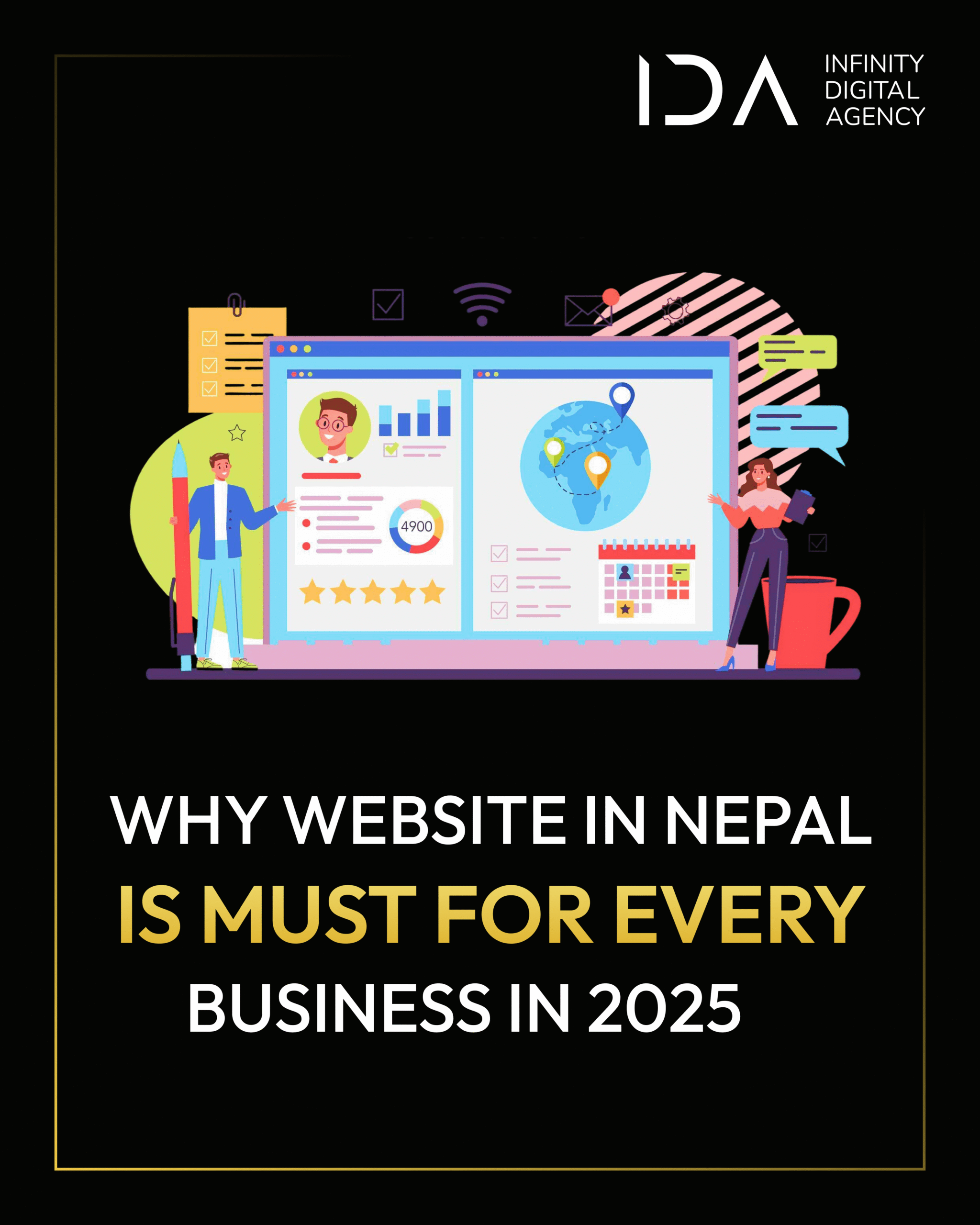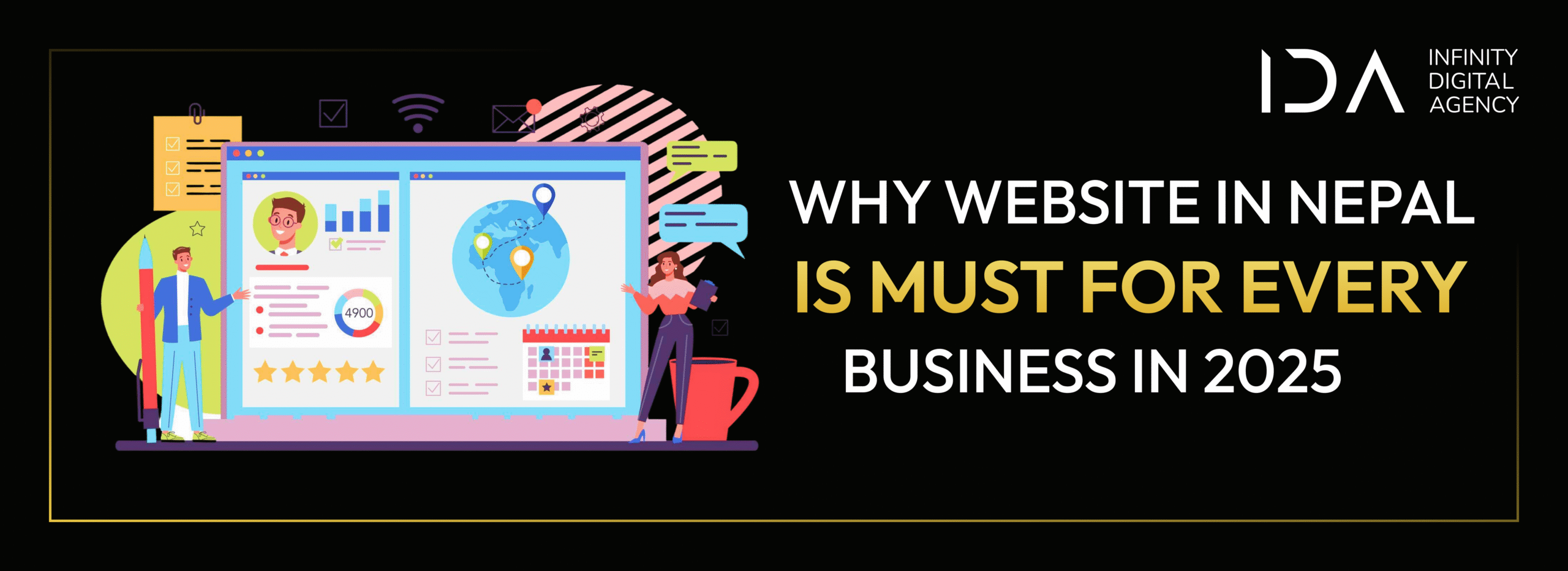The internet era has changed nearly everything, particularly when it comes to conducting business in Nepal. These days, most people are glued to their phones, scrolling to find everything from trekking guides to cozy little cafés.
Due to this shift, having a strong online presence has become almost a necessity for businesses. Still, many traditional business owners wonder: Can a company really survive without a website in today’s Nepal? Or is having an online home just as important as having a shop on the street?
In this guide, we’re here to answer all your questions, helping you understand precisely what your business needs not just to survive, but truly grow in today’s changing market.
Traditional Business Practices in Nepal
In Nepal, many businesses continue to operate based on personal relationships and trust. The way people conduct business here is deeply rooted in culture and community. Even with the rise of digital tools, small-scale companies often rely on local networks and strong bonds between customers and owners.
1. Word-of-Mouth Marketing
In smaller towns and villages, word of mouth is one of the most powerful ways to promote a business. People trust recommendations from their friends, family, or neighbors. For example, teahouses and local shops often get new customers because loyal ones spread the word. Trekking agencies also depend on travelers sharing their good experiences, which helps build a reputation that keeps customers coming back.
2. Power of Local Networks and Reputation
In Nepal, businesses often grow through local connections. Many times, business owners work with family members or close friends, trusting them more than anyone else. This is why many mom-and-pop shops are successful, they know their customers well and often offer special deals or credit. However, businesses must be cautious: a single bad review or negative comment can quickly harm a business in a tight-knit community.
Examples of How It Works
Think about a small teahouse in a village. It’s not just a place to get tea, but also a community spot where people make deals, chat, and share news. Similarly, trekking companies in Nepal built their reputation by working with local guides and lodges they trusted, long before anyone had a website. Even handicraft artisans keep their traditions alive, selling at local festivals and markets instead of online.
Cultural Roots Behind It
In Nepali businesses, family and respect play a big role. Often, the older family members make the big decisions because people trust their experience. Festivals like Dashain and Tihar are also opportunities for business owners to meet people, build relationships, and expand their networks. It’s not just about sales; it’s about connecting with the community.
Changing Consumer Behavior in Nepal
Nepal’s consumer habits are changing as more people get access to the internet and smartphones. By 2024, nearly half of Nepal’s population will be online, with over 80% using smartphones to access the internet. This has led to a surge in online shopping, with platforms like Daraz and SastoDeal offering a wide range of products, from electronics to local crafts.
Consumers now rely heavily on social media to research products, compare prices, and read reviews before making a purchase.
Trust in online reviews and influencers is also growing, and digital wallets like eSewa and Khalti are becoming popular for cashless transactions. Young people, in particular, expect brands to be active on social media and provide a seamless mobile experience. They also follow influencers on platforms like Instagram and TikTok to inform their purchasing decisions.
While traditional word-of-mouth marketing still plays a key role in rural areas, businesses in urban centers are adapting by combining digital tools with conventional methods to stay connected with their customers.
Why Having a Website in Nepal is Important for Businesses
In Nepal, an increasing number of people are using the internet to search for products and services. If a business doesn’t have a website, it can miss out on many potential customers and opportunities for growth. A website helps you look professional, reach a wider audience, and stay ahead of the competition.
1. You Lose Customers Without a Website
Today, travelers and locals search online before choosing hotels, trekking companies, or even shops. Without a website, many people won’t even know your business exists. Younger customers, in particular, trust businesses they can find online. Having a website helps you reach a wider audience, including customers from other countries.
2. It’s Harder to Build Trust and Grow Your Brand
A business without a website may look old-fashioned or untrustworthy. People like to see real websites where they can read reviews, learn about services, and feel safe making payments. A well-designed website demonstrates that your business is serious, reliable, and poised for growth.
3. Competitors With Websites Will Beat You
Businesses with websites appear on Google and attract more customers. They also utilise social media and online stores to increase sales. If you don’t have a website, other businesses with websites will attract your customers, and you will fall behind.
4. Other Risks You Should Know About
Even if you use social media, without a proper website, your business could face security problems and miss out on bigger partnerships. Additionally, Nepal’s new online business rules may soon require businesses to have official websites. Without one, you may struggle to grow or obtain support easily.
Wrapping Up
Today, having a website is very important. Without one, you can lose customers, miss out on new opportunities, and fall behind other businesses. A website helps people find you, trust you, and choose your services.
If you need a professional and straightforward website, Infinity Digital Marketing Agency can help you! Contact us today and let’s grow your business together!

